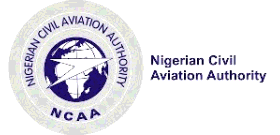 Nigeria’s Aviation Sector Sets Sights on Zero Debt: New Cost Recovery Measures to Reshape Industry
Nigeria’s Aviation Sector Sets Sights on Zero Debt: New Cost Recovery Measures to Reshape Industry
The Nigeria Civil Aviation Authority (NCAA) is ushering in a new era of financial discipline and operational efficiency, with a sharpened focus on cost recovery and regulatory compliance. At the heart of this transformation is a call for deeper collaboration among aviation stakeholders and government agencies—a move that promises to redefine the landscape for airlines, service providers, and the broader aviation value chain across Nigeria and, by extension, the West African region.
During the recent Civil Aviation Cost Recovery Optimization Stakeholders’ Retreat in Lagos, the NCAA’s Director of Finance and Accounts, Mr. Olufemi Odukoya, underscored the urgent need for sustained synergy between industry players and regulatory bodies. The retreat, themed “Strengthening Collaboration for Revenue Optimization and Operational Efficiency,” brought together key figures from the aviation sector to address persistent challenges in revenue collection and cost management. Odukoya’s message was clear: inter-agency cooperation is not just beneficial—it is essential for effective regulation, financial transparency, and the sustainable growth of Nigeria’s aviation industry.
Central to the NCAA’s operations is a cost recovery model anchored by a 5% Ticket, Cargo, and Charter Sales Charge (TSC). However, the Authority has faced ongoing hurdles due to delayed or incomplete remittances from some operators. These lapses, Odukoya warned, threaten the NCAA’s ability to maintain robust safety oversight and uphold the high standards expected of Nigeria’s civil aviation system. “Aviation safety and efficiency depend on consistent funding. When operators fail to remit funds promptly, the system is strained, oversight weakens, and risks increase,” he cautioned.
The issue of compliance is not new. At the February 2025 Chief Financial Officers’ Summit, the NCAA identified significant gaps in statutory remittances. While many airlines have since improved their practices, a handful of defaulting operators remain under close regulatory scrutiny, with sanctions already being enforced. This tightening of oversight is part of a broader strategy to ensure that all stakeholders fulfill their financial obligations, paving the way for a more stable and sustainable aviation sector.
To further strengthen the sector’s financial foundation, the NCAA is intensifying its collaboration with key revenue agencies, including the Federal Inland Revenue Service (FIRS) and the Nigeria Customs Service (NCS). By harmonizing fiscal policies with the operational realities of aviation, the Authority aims to foster greater financial discipline and create a more resilient funding framework. This approach is particularly relevant for African markets, where regulatory alignment and efficient revenue collection are critical to unlocking the full potential of the aviation industry.
Odukoya highlighted the pivotal role of aviation as an economic driver, contributing approximately \$1.7 billion—or 0.7%—to Nigeria’s GDP. Despite this, he lamented that the sector’s output remains below its potential as a gateway for foreign investment and employment. Inefficiencies within the aviation value chain, he warned, could lead to a significant decline in GDP and job losses, underscoring the need for urgent reforms.
Addressing the persistent funding gaps, the NCAA is developing a new remittance framework that will require airlines to secure Advance Payment Guarantees (APG) from their banks. This measure is designed to safeguard against late or non-remittance, reducing the Authority’s reliance on manual follow-ups and ensuring a steady flow of revenue. The move is expected to streamline financial processes, enhance transparency, and provide a more predictable funding base for regulatory activities.
Reaffirming the NCAA’s zero tolerance for defaults, Odukoya emphasized that the next phase of financial regulation will be defined by full debt recovery, preventive measures, and stricter enforcement. The Authority’s commitment to these principles is reflected in its upcoming Zero Debt Strategy, set to take effect in January 2026. This policy will require all airlines to clear outstanding debts and maintain current remittances, with non-compliance attracting swift and decisive sanctions.
The retreat also highlighted the importance of leveraging technology to enhance financial reporting and revenue tracking. Stakeholders were encouraged to adopt automated systems, including the use of Artificial Intelligence (AI), to improve accuracy and compliance. Such innovations are expected to bridge the gaps between revenue generation and actual collection, a challenge that has long plagued the sector.
Beyond financial reforms, the NCAA is advocating for a culture of open communication, data sharing, and aligned objectives among all stakeholders. “Collaboration is not optional; it is the lifeline of aviation safety and national development,” Odukoya asserted. This ethos of partnership is seen as vital to building a resilient aviation ecosystem capable of withstanding economic shocks and driving long-term growth.
For Africa’s aviation professionals, these developments in Nigeria offer valuable insights into the evolving regulatory landscape. The emphasis on cost recovery, financial discipline, and technological innovation reflects broader trends across the continent, where governments and industry players are seeking to modernize infrastructure, attract investment, and enhance competitiveness. As the NCAA moves to implement its Zero Debt Strategy and deepen inter-agency collaboration, the ripple effects are likely to be felt across the region, setting new benchmarks for operational efficiency and financial sustainability.
Looking ahead, the Nigerian aviation sector’s commitment to reform and innovation positions it as a bellwether for change in Africa’s air transport industry. By embracing stricter enforcement, fostering collaboration, and leveraging technology, the sector is poised to unlock new opportunities for growth, investment, and job creation—benefits that will resonate far beyond Nigeria’s borders.
